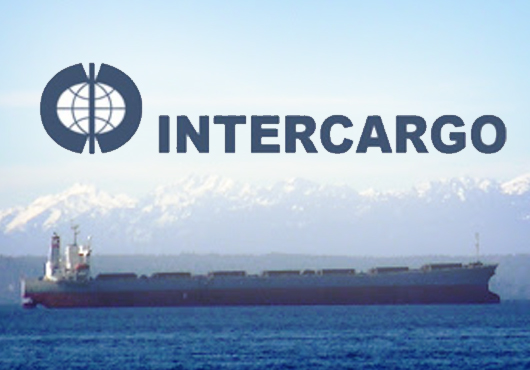
(www.MaritimeCyprus.com) This edition of the Bulk Carrier Casualty Report covers reported bulk carrier casualties from 2009 to 2018 and provides an analysis on statistics and trends over the last 10 years. Forty eight (48) bulk carriers over 10,000 dwt have been identified as total losses over this 10 year period.
Cargo failure and liquefaction, continue to be a major concern for dry bulk shipping. There were 9 casualties of suspected cargo failure among the 48, consisting of 6 bulk carriers carrying nickel ore from Indonesia, 2 vessels with laterite (clay)
iron ore from India and 1 with bauxite from Malaysia, and there were 101 lives lost associated with those 9 casualties against a total of 188 lives lost for all 48 casualties.
INTERCARGO welcomes the latest amendment to the International Maritime Solid Bulk Cargoes Code (IMSBC 04-17) which entered into force on 1st January 2019 and includes important updates related to cargoes that may liquefy. Pertinent updates include: changes to section 4.5 of the Code which stipulates the shippers’ responsibility to ensure that the testing and sampling for Transportable Moisture Limit (TML) and moisture content is carried out at the correct intervals; changes to the individual coal schedule which strengthen and clarify the designation of coal as Group A and B cargo; and the inclusion of a new test procedure for determining the TML of coal.
Ship operators need to be especially cautious when loading during a wet season, as seasonally experienced in certain parts of South East Asia, however it is paramount that shippers and local authorities fulfill their obligations as required by the IMSBC Code.
Lessons learnt from past incidents play an important role in determining where additional safety improvement is necessary. The importance of flag States’ timely submission of casualty investigation reports to IMO should be stressed, as a means for identifying the cause of incidents and enabling corrective actions to be taken. The IMO GISIS database showed that by end January 2019, 23 investigation reports of 48 losses had not been submitted to IMO by their flag States.
Some details further highlight the issue of slow reporting:
- The highest loss of life has been attributed to cargo failure (liquefaction), totaling 101 lives lost from the 9 casualties. Two (2) investigation reports of those 9 cases have yet to be submitted to IMO.
- The most common reported cause of ship losses has been grounding, totaling 19 losses among the 48 cases. Six (6) investigation reports of those 19 cases have not been submitted to IMO.
- Six (6) ships lost with unknown causes claimed 61 lives. Five (5) investigation reports of those 6 cases have not been submitted to IMO.
- Reported flooding led to losses of 6 ships. No investigation report of those 6 cases has been submitted to IMO.
INTERCARGO stresses the importance of timely submission of the casualty investigation reports to IMO from the relevant flag States, as a means of identifying the causes of the incidents and enabling corrective actions.
For more details click below to download full report from Intercargo:
Source: Intercargo














